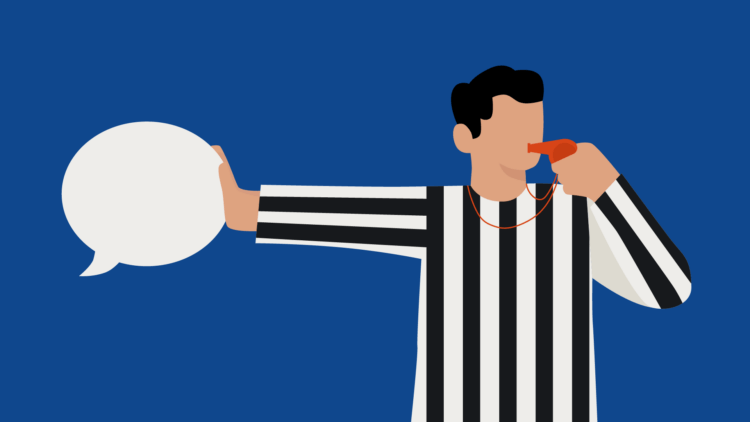
The discovery process is a critical element of litigation, and objections to discovery requests are every bit as essential. Any legal professional working in litigation needs to know how to make these objections, and how to respond when the opposing side makes them. Nonetheless, the applicable rules for discovery objections can be confusing.
This is why a cheat sheet for discovery objections can be valuable.
Simply relying on the recitation of a long list of boilerplate objections will no longer be sufficient. Instead, you will need to provide a specific basis for your objections. If the other side uses objections improperly to avoid providing responses, you need to be able to attack their position to get the information you need.
Managing discovery objections along with administrative tasks can be overwhelming, but Clio Manage streamlines your workload so you can focus on getting discovery done right—book a demo!
Understanding the purpose of objections in the discovery process

Objections have their place in all discovery procedures, including interrogatories, requests for production, requests for admissions, and depositions. Outside the deposition setting, these objections will have to be made in written form.
You may make a written objection because:
- Your opponent’s question or request is improper
- You want to avoid answering a difficult question
- You want to avoid producing material that is harmful to your case
However, you want to avoid the appearance of making bad-faith objections in order to withhold evidence harmful to your case. On the other hand, you definitely want to be able to call out your opponent when they use this tactic.
This is why having a discovery objection cheat sheet is useful. You need a template for the discovery objections you will often use or respond to in any case, while remaining mindful that discovery law will vary between jurisdictions.
Disclaimer: These discovery objections are designed to provide a helpful starting point and to give you a broad understanding of the types of discovery requests you can object to—the information is not exhaustive and not intended as legal advice. And, of course, not all objections will be accepted. It’s critical that you consult with and stay up-to-date on the legal principles relevant to your practice area, jurisdiction, and specific case to ensure you have a solid understanding of how these objections fit within applicable law.
Common types of discovery objections

The following are some of the more common types of discovery objections.
Note: These objections apply to most jurisdictions, and many can also be used in a deposition setting or in court. However, it is important to remember that each state has different discovery rules, as does federal court. Also remember that this list is not exhaustive, only a sampling of common objections.
Not relevant
Evidence is relevant if it has any probative value for a fact that could help determine the outcome of the case. In other words, the evidence must relate to the case and potentially help a trier of fact (whether judge or jury) decide which party will win or lose.
Some jurisdictions, such as California, are somewhat more permissive with the scope of discoverable evidence. These jurisdictions allow discovery into both relevant matters and those matters that appear “reasonably calculated to lead to the discovery of admissible evidence.”
In federal court, this is not the requirement, as the “reasonably calculated” standard was removed by a 2015 amendment of the Federal Rules of Civil Procedure and replaced with a proportionality standard (discovery must be “proportional to the needs” of the case).
Example
- Interrogatory in auto accident case: “Please list the names and addresses of all your employers over the last 20 years.”
- Response [applying federal court standard]: “Objection. This interrogatory does not seek discovery regarding a matter that is relevant to any party’s claim or defense and proportional to the needs of the case, as the plaintiff’s current and past employment does not fit this criteria in a dispute over a motor vehicle accident.”
Vague or ambiguous
If a discovery request is overly vague or ambiguous, it may be impossible to respond accurately. When the request is sufficiently vague, you may even object that the request is unintelligible.
- Interrogatory in dispute over multiple bank accounts: “On what dates did XYZ Bank send statements to plaintiff?”
- Response from XYZ Bank: “Objection. The interrogatory is vague and ambiguous as it fails to specify the types of statements, the accounts for which statements were sent, or the time period for which plaintiff seeks a response.”
Subscribe to the blog
Compound
Most jurisdictions set limits on the amount of interrogatories and admission requests a party can propound in one case. Compound questions can be used to circumvent these limits by asking more than one question in a single discovery request, making them objectionable.
- Request for admission: “Admit that you sold the insurance policy to plaintiff and failed to disclose the correct policy limits.”
- Response: “Objection. The request is impermissibly compound.”
Unduly burdensome or oppressive
A discovery request can be unduly burdensome or oppressive if complying with the request would require too much time, energy, and expense for the responding party.
This objection is most often used with document requests but can apply to other areas of discovery. For example, an interrogatory might be unduly burdensome if it requires the responding party to create a compilation of information.
Note that the burden on the responding party is weighed against the actual need for the discovery and the nature of the case. Even if a request seeks voluminous amounts of records, it might be objectionable in a low-value slip-and-fall case, but not objectionable in a multi-million dollar class action. (The federal proportionality standard, outlined above, can serve as a basis for this objection in federal court cases.)
- Document request in single-plaintiff employment discrimination action against a restaurant: “Produce all employment records from the last 5 years for all employees at the restaurant.”
- Response: “Objection. The request is unduly burdensome and oppressive.” (Other objections, such as relevance and employee right to privacy, may also apply here.)
Get the Latest Legal Trends Report
The latest Legal Trends Report is here! See how firms achieve 4x faster growth, meet AI-first clients, and reduce stress by 25%, plus more insights driving the future of law.
Get the reportAttorney-client privilege and work product
The protections for attorney-client communications and attorney work product are similar but different in key respects. While you are not likely to be forced to invoke attorney-client privilege for discovery responses, the work product objection is more common.
Attorney-client privilege serves as ironclad protection for most communications between a lawyer and their client regarding the legal matter at issue.
There are some limited exceptions in most jurisdictions, such as seeking legal advice to commit a criminal act or using your lawyer’s advice as a legal defense. It is doubtful a party will propound discovery requests seeking privileged attorney-client communications.
Attorney work product protection is a different matter. The work product doctrine protects any documents or tangible things prepared in anticipation of litigation or for trial. This generally serves as complete protection for anything reflecting an attorney’s impressions, conclusions, opinions, or legal theories, as is the case in federal court and under California law.
Work product that goes beyond this description generally receives qualified protection, where it will be protected except in extreme cases of unfair prejudice to the party seeking the information.
- Interrogatory in auto accident case: “Identify all witnesses to the accident who have stated the traffic light was red at the time of collision.”
- Response: “Objection. This interrogatory seeks protected attorney work product.”
Important things to consider when objecting

Boilerplate objections to discovery requests are not likely to survive scrutiny if opposing counsel brings them to the court’s attention. Improve your objections by keeping the following in mind:
- Be specific. When you state an objection, be as specific as practically possible as to why the objection applies to the discovery request.
- Be selective. Only use the objections that best apply to any specific discovery request, instead of stacking numerous objections in one response, many of which may be relatively weak.
- Know the rules. Become well-versed on the applicable rules of evidence and civil procedure so you know how to use objections properly.
- Know how to phrase. Know the correct phrasing of an objection for your jurisdiction, such as avoiding the phrase “reasonably calculated to lead to admissible evidence” in federal court cases.
Wrapping up
A handy cheat sheet for objections to discovery requests can alleviate pressure on legal professionals and allow discovery to proceed smoothly. Nonetheless, remember the cheat sheet is only a starting point. You still need to familiarize yourself with your jurisdiction’s rules relating to allowable discovery and appropriate objections.
If you also want to streamline the operations of your legal practice, giving you time to focus on discovery issues, look to Clio Manage for help—book your free demo now.
What are the most common discovery questions?
Most discovery questions relate to the responding party’s claims or defenses, as well as any facts, documents, witnesses, or other evidence that party has to support their claims or defenses.
How do you make good objections to discovery?
Good objections to discovery requests will be well-grounded in the applicable law and stated clearly enough that they will survive a challenge by the opposing party. This is accomplished with a solid understanding of your jurisdiction’s laws on evidence and civil or criminal procedure.
What can you not ask in interrogatories?
While there is no strict bar on what can be asked in interrogatories, any interrogatory that does not seek relevant evidence, or which seeks privileged information, will be objectionable.
Subscribe to the blog
-

Software made for law firms, loved by clients
We're the world's leading provider of cloud-based legal software. With Clio's low-barrier and affordable solutions, lawyers can manage and grow their firms more effectively, more profitably, and with better client experiences. We're redefining how lawyers manage their firms by equipping them with essential tools to run their firms securely from any device, anywhere.
Learn More


